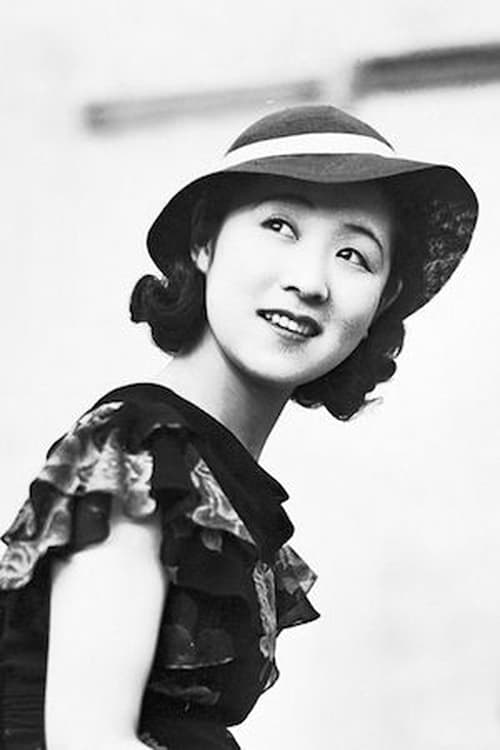
self (archive footage)
This documentary composed of numerous testimonies and archives, filmed in Japan highlights the extraordinary career of the actress-director Kinuyo Tanaka and her singular ambition to impose a female point of view on cinema, reflecting her own vision of the world.
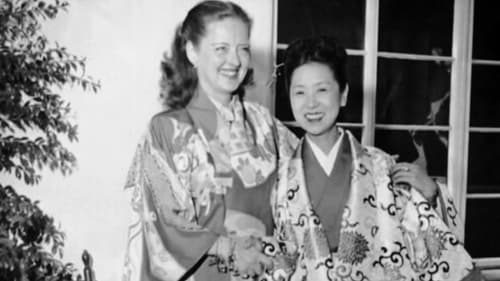
Self (archive footage)
Compilation of film footage documenting Japanese film star Kinuyo Tanaka's goodwill tour of the U.S. in 1949.
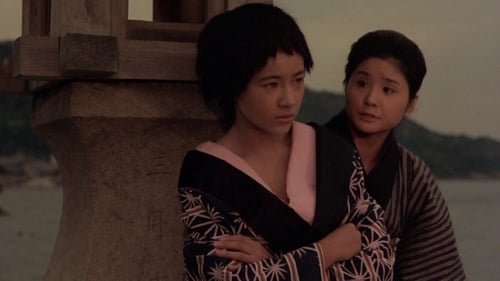
The story of an orphan girl, brought up in naive, rustic innocence by an elderly relative, who is suddenly exposed to the brutality, greed and deceptiveness of the outside world when her grandmother dies. Notwithstanding her healthy distrust of all strangers, which her upbringing instilled in her, it is not long before a cunning racketeer finds her weak point, that temptation which she cannot resist, that weakness, different as it may be, that each of us has, and brings her into his power. What follows is a depiction of her cruel descent into the depths of moral decay, as she becomes a collaborator in a system of exploitation, unbridled lust, vanity, and greed, in which she and other victims are always the losers.

Old Nun
A Swiss nun falls in love with a Japanese engineer.

Kiku Sasaki
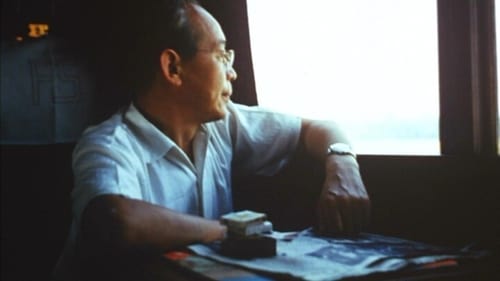
Kenji Mizoguchi: The Life of a Film Director (Aru eiga-kantoku no shogai) is a 1975 Japanese documentary film on the life and works of director Kenji Mizoguchi, directed by Kaneto Shindo (Onibaba). It runs 150 minutes and can be found on the second disc of the Region 1 Criterion Collection release of Ugetsu (1953).
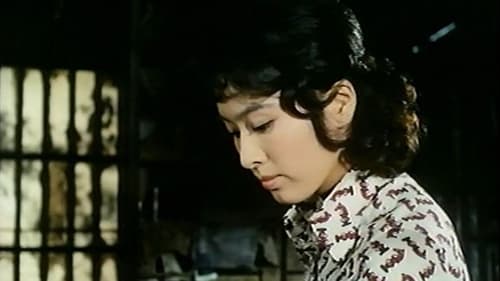
Old Osaki
A young journalist interviews an elderly woman about being forced into prostitution in Borneo at a brothel called Sandakan No. 8.

A story about being scared of getting old.
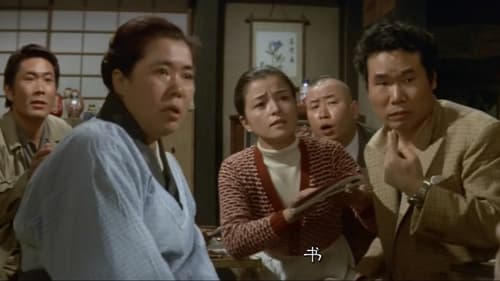
the old family mistress
When Tora-san returns to visit his family, he is surprised to find an arrogant professor occupying his room. The professor and Tora-san become rivals for the affection of Chiyo.

Shinjiro Ishiyama / Aodaisyô
Seventh movie of the Wakadaishō series directed by Kengo Furusawa

Madame Yasumoto
나가사키에 있는 독일의료원에서 의학공부를 마치고 에도로 돌아온 야스모토는 시골 병원에서 인턴 과정을 밟게 된다. 귀족들을 상대하는 왕립의료원에서 일하기를 원했던 그는 하층민들이 주로 오는 공동 진료소로 오게 되자 불만을 품게 된다. 하지만 자만심으로 가득 차 있던 야스모토는 ‘붉은 수염’이라 불리는 시골 병원장의 진정한 모습에 점차 동화되어 가면서 진정한 의술을 배우게 된다.

Tsuna
남편을 전쟁터에 보낸 후 큰 저택에서 딸 도모코를 키우던 이쿠요는 집을 나간다. 할머니의 손에 외롭게 자라던 도모코는 아버지마저 사망하자 갈 곳이 없어지고 만다. 결국 낯선 사람에게 맡겨져 게이샤 교육을 받으며 자란 도모코는 시간이 흘러 어엿한 게이샤로 성장하지만 동경의 한 유곽에서 어머니를 만나며 또 한 번 험난한 인생길에 들어선다.

Youth's Mother
실화를 바탕으로 만든 영화. 젊은 아마추어 요트선수 호리에는 요트를 타고 태평양을 건너는 불가능한 계획을 세운다. 길이 5.8미터, 폭 2미터짜리 ‘머메이드호’에 탄 호리에는 출발부터 어려움을 겪는다. 거친 파도와 맞서 싸우는 호리에의 고난과 고독을 실감나게 담아내는 연출이 인상적인 작품.

Shizuko Sonobe
A Tokyo family escaping the war relocates to a Hokkaido village; their daughter is set to marry the local leader's son, but her siblings disapprove.

Oharu
The Fencing Master tells the story of a man trying to survive as the only world he knows is becoming increasingly irrelevant. Danpei Ichikawa lives for swordfighting – he was once a renowned kabuki swordfight choreographer, and as the Chairman of the New National Theatre Company, he wants nothing more than to choreograph the swordfights for the modern plays put on by the company.
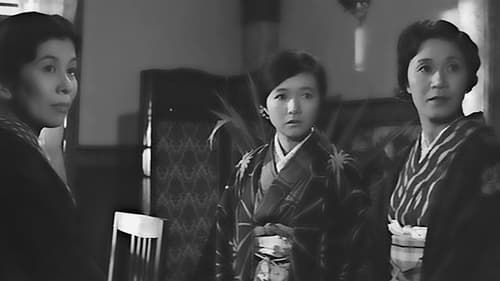
Kishi, Fumiko's mother
일자리를 찾던 가난한 후미코는 카페 `기린`에서 일하게 된다. 후미코는 자신이 쓴 시를 손님들에게 보여주기도 하는데, 그러던 중 한 남자가 그녀의 시를 칭찬하며 동인지의 일원이 되기를 권한다. 후미코는 그와 함께 카페를 떠나지만, 그녀의 생활은 순탄치 않다. 어느 날, 그녀의 작품 〈방랑기〉가 잡지에 실리고 후미코에게 새로운 인생이 열린다.
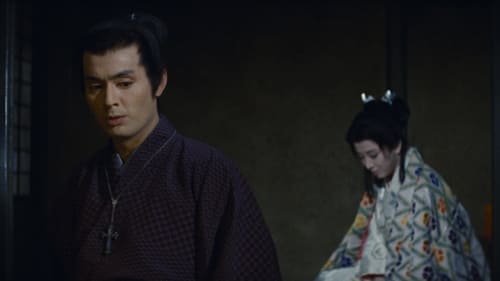
Director
혼란스러운 16세기 일본, 지방 영주들은 세력을 안정시키기 위해 천주교의 전파를 막으려고 한다. 다도로 유명한 귀족집안의 긴은 우콘을 사모하지만 그는 이미 결혼한 사람인데다 자신은 오로지 천주만을 모시겠다는 대답을 듣고 집안을 위해 모즈야와 결혼한다. 천주교에 대한 탄압이 점점 더 심해지면서 우콘 역시 귀향길에 오르게 되고 긴은 우연히 히데요시 도요토미의 눈에 들어 강제로 끌려가게 될 처지가 된다.
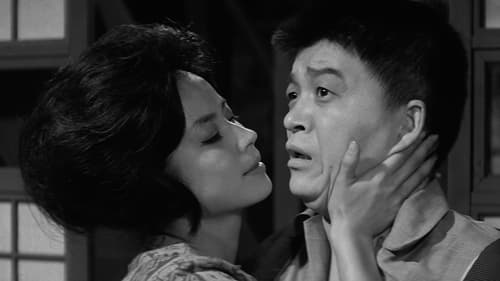
Director
1958년 성매매 금지법이 시행되자 다수의 성매매 여성들이 보호 및 재활 시설로 옮겨진다. 모범적인 모습을 보인 구니코는 부인회의 후원을 받아 가게를 운영하는 부부의 집에 머물면서 일을 돕기 시작한다. 그러나 그녀의 과거가 드러나자 사회적 편견과 차별에 끊임없이 시달리게 된다.

Mother
Set in 1926 when Japanese tradition was much stronger, this drama looks at the inner workings of a small family, especially the relationship between a sister and brother.
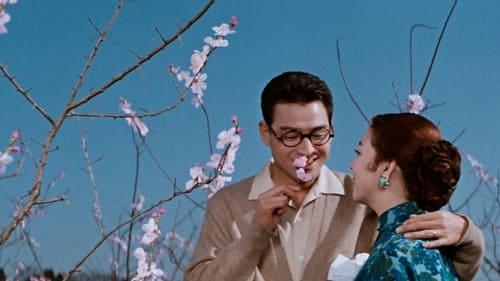
Director
만주사변 이후 건국된 만주국은 저마다의 사연을 가진 다양한 나라의 사람들이 모인 곳이었다. 청나라 마지막 황제의 동생이자 만주국의 군인이었던 푸제는 일본인 여성 류코와 혼인을 맺는다. 하지만 전쟁과 정치적 긴장 같은 급변하는 정세와 함께 두 사람의 관계는 한 치 앞을 내다 보기 힘든 상황에 처한다. 실제 역사의 주인공인 아이신 가구라(사가 히로)가 쓴 회고록을 바탕으로 만들어진 작품.

Princess Yamato
The legend of the birth of Shintoism. In Fourth Century Japan, the Emperor's son Ouso expects to succeed his father on the throne, but Otomo, the Emperor's vassal, prefers Ouso's stepbrother, and conspires to have Ouso die on a dangerous mission he has contrived. But Ouso prevails in the mission and returns to his father's castle under a new name, Prince Yamato Takeru. Otomo plots to have the Prince sent into even greater danger, but Otomo is unaware that the gods have favored the Prince and the outcome is far from what any of them expected.

Myokan
The adopted son of an Osaka courier falls in love with a prostitute and, discovering that she is about to be purchased by a client, steals money from his employer to redeem her. Hunted criminals, the two young lovers take flight to Yamato, but, as in Chikamatsu's other domestic tragedies of love and duty (known as sewamono), they must be pursued and their passion destroyed by death. Favourite Uchida themes, such as the indenturing of a prostitute (cf. YOSHIWARA; A BLOODY SPEAR AT MT. FUJI), and his characteristic emphasis on performance and theatrical artifice re-emerge here; but the daring device of having Chikamatsu appear as a character - not unlike having Shakespeare interpolated into a film adaptation of one of his plays - is just one of many surprises this remarkable film holds. “Extraordinary” (Donald Richie).

Shige Ozawa
Based on the Nobu Koito story
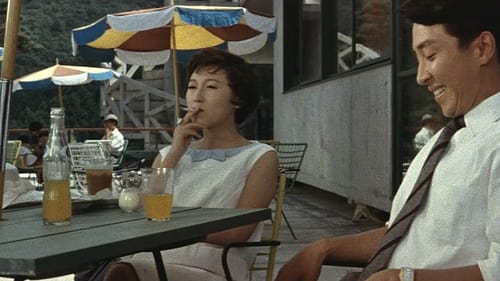
Fumi
Two men at an ironworks encounter roadblocks: the first does not have the grades to get a job, while the other finds himself falling for a co-worker.
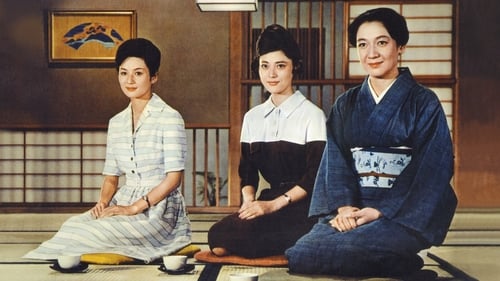
Kiyoko Hirayama
아버지 히라야마는 딸이 성품 좋고 가정적이고 능력 있는 남자를 만날 수 있도록 도움주기를 원한다. 하지만 말이 없고 자식과 살갑게 대하지 않는 히라야마의 성격상 딸은 그런 아버지의 의중을 파악하기 힘들다. 어느 날 딸 세츠코가 결혼할 상대가 있다고 하자 히라야마는 불같이 화를 낸다. 그리고 결혼식에 참석하지 않겠다고 선언한다.
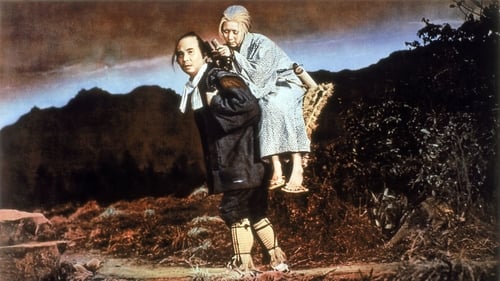
Orin
신슈 산골의 외딴 마을. 춥고 척박한 이 마을에서는 입을 덜기 위해, 70세가 넘은 노인은 산속에 버려야 한다는 규칙이 있다. 일흔을 목전에 둔 오린은 아들 다쓰헤이에게 후처를 들이게 해 안심하고 산에 갈 수 있다고 기뻐한다.

The beauty of the Japanese family system is portrayed through the women who greet a woman who went to America thirty years ago to visit her grave.

Omitsu, Heiichiro's mother
1957 drama from director Kôzaburô Yoshimura

Rie
In a military family, an illegitimate son is brutalized by his brothers. A patriarchal, feudalistic household where dissent is forbidden is used to reveal the whole imperialist system that afflicted Japan between 1921 and 1946. Winner of the Crystal Globe at the Karlovy Vary Film Festival.
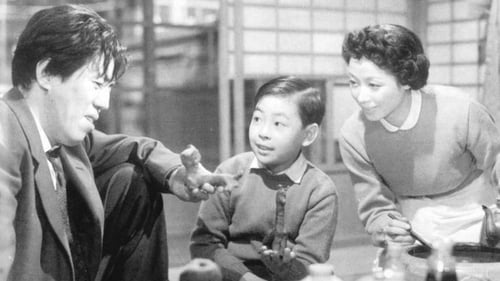
Yukiko Matsumoto
In this Golden Globe winner for Best Foreign-Language Film, director Heinosuke Gosho -- a master chronicler of Japanese middle-class life -- presents the story of Kiyoshi Yoshida (Koji Shitara), who feels estranged from both parents after his father returns from war. How the boy adapts to life with the virtual stranger his father has become is the film's focus. Chikage Awashima, Yûnosuke Itô and Yoshiko Kuga also star.
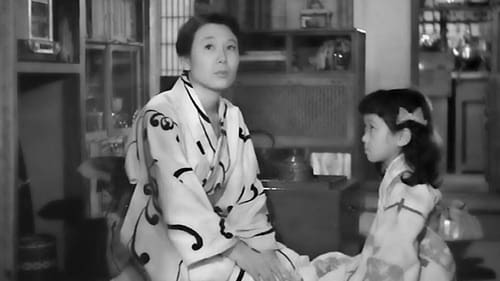
Rika Yamanaka / Oharu
츠타가 운영하는 야나기바시의 기생집. 어느 날, 남편과 아들을 잃은 리카가 직업소개소를 통해 일자리를 구하러 찾아온다. 츠타는 리카가 이름을 바꾸면 일을 할 수 있게 해주겠다고 하고, 리카는 이름을 ‘오하루’로 바꾼 후 식모살이를 시작한다. 힘들어도 온갖 허드렛일을 열심히 하던 오하루는 시장을 보러 갔다가 츠타의 기생집이 빚더미에 눌려 있음을 알게 된다. 쇠락한 기생집에서 생활하는 게이샤들의 애환을 당대 최고의 여배우들이 멋지게 연기해낸 작품이다. (2011년 시네마테크부산 - 나루세 미키오 특별전)

With one of the busiest film industries in the world, Japan was able to submit several films into competition at the 1957 Berlin Film Festival. One of the best of these was Arashi, directed by Hiroshi Inagaki of Rickshaw Man fame. Anticipating Hollywood's Table for Five by nearly a quarter of a century, the film concerns the efforts by a recently widowed high-school teacher to raise his four children alone. Chihu Ryu is terrific as the central character, while Izumi Yukimura is even better as Ryu's eldest daughter. For reasons unknown, Arashi is often omitted from "official" lists of Inagaki's films.
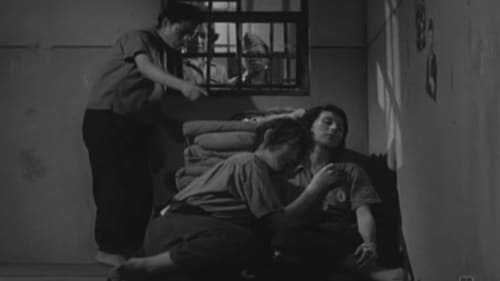
Prison Warden
The woman prison has a cast all with a story of their own and with no dull or routine day. There is an employee who is divorced after her husband had an affair. She loves the jailed criminals and almost sees them as family. One day at a workshop someone faints while working hard to make money because she has a poor boyfriend. Another inmate is knocked up Another is a mother and has her child with her.

The story of a novelist whose wife is confined in a mental hospital. His love for her drives him to write about her, though he runs into trouble when her parents accuse him of cashing in on her misfortune.
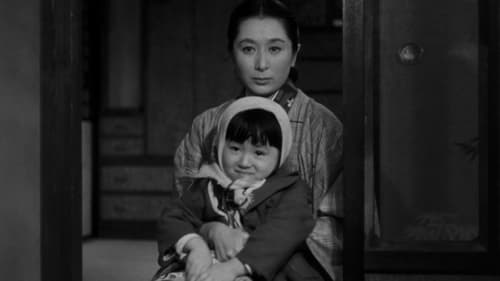
Director
두 아이의 어머니인 후미코는 지금까지 가정에 충실한 삶을 살아왔다. 하지만 시인이 되고 싶다는 마음을 품은 채 후미코는 계속해서 시를 쓴다. 그런 후미코에게 또다른 기회가 찾아오려고 할 때, 후미코는 남편의 불륜과 유방암이라는 고난을 맞는다. 여성 극작가로 활발하게 활동한 다나카 스미에(1908~2000)와 다나카 기누요의 협업이 빛나는 작품.

Neighbor's wife
두 아이의 어머니인 후미코는 지금까지 가정에 충실한 삶을 살아왔다. 하지만 시인이 되고 싶다는 마음을 품은 채 후미코는 계속해서 시를 쓴다. 그런 후미코에게 또다른 기회가 찾아오려고 할 때, 후미코는 남편의 불륜과 유방암이라는 고난을 맞는다. 여성 극작가로 활발하게 활동한 다나카 스미에(1908~2000)와 다나카 기누요의 협업이 빛나는 작품.

Housewives from four neighboring households casually gather at an old well at Kaneko's house in a residential area on the outskirts of Tokyo. If two people come together, they will talk about selling kimonos, if three people come together, they will discuss food shopping, and when four people come together, there will be laughter. Focusing on four housewives who gather at the edge of the well, it depicts the daily life of each household.

Director
도심에 자리한 어느 큰 절, 이곳에는 어떤 사정으로 인해 절에서 오랫동안 자란 치즈루, 아야코 세츠코 세 자매가 있다. 서로 다른 개성을 가진 세 자매는 절의 일을 돕거나 자신의 미래를 준비하며 성실히 생활하고, 그러는 동안 절을 방문하는 사람들과 다양한 만남을 가진다. 오즈 야스지로 감독이 각본에 참여했다.

Yoneya
도심에 자리한 어느 큰 절, 이곳에는 어떤 사정으로 인해 절에서 오랫동안 자란 치즈루, 아야코 세츠코 세 자매가 있다. 서로 다른 개성을 가진 세 자매는 절의 일을 돕거나 자신의 미래를 준비하며 성실히 생활하고, 그러는 동안 절을 방문하는 사람들과 다양한 만남을 가진다. 오즈 야스지로 감독이 각본에 참여했다.
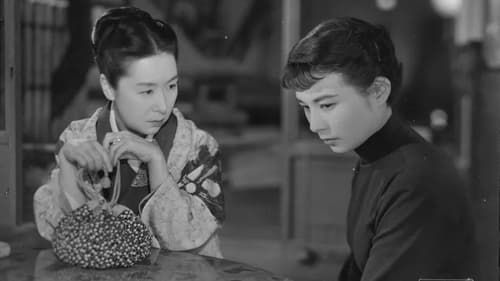
Hatsuko Mabuchi
남편과 사별한 후 하츠코는 교토에서 혼자 힘으로 유곽을 꾸려 나간다. 외동딸 유키코는 도쿄의 음악학교에서 공부하고 있다. 그런데 약혼한 지 얼마 되지 않았던 유키코가 돌연 자살을 시도하고, 놀란 하츠코는 도쿄로 달려가 유키코를 집으로 데려온다. 하츠코는 마음에 두었던 젊은 의사 마토바에게 유키코의 치료를 부탁한다. 상심해 있던 유키코는 마음이 통하는 마토바와 점점 더 가까워진다.
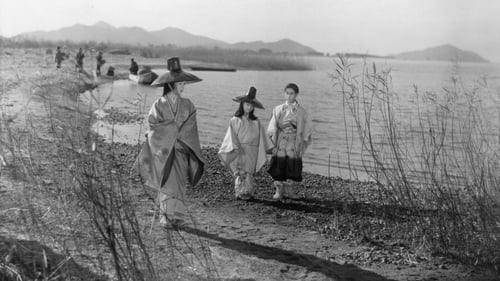
Tamaki
여행 중 인신매매범의 손에 걸려 모친과 헤어지게 된 주시오와 안주의 오누이는 호족 산쇼다유에게 팔리게 된다. 노예나 다름없게 된 이 두 사람은 중노동에 시달리면서도 모친과의 재회를 꿈꾸며 하루하루를 보낸다. 그로부터 십년 후 여전히 산쇼다유의 수용소에 갇혀있는 이들은 어느 날 새로 들어온 젊은 여인이 부르는 노래에 자신들의 이름이 들어있는 것을 알고는 깜짝 놀란다.
인신매매가 횡행하는 헤이안 시대를 배경으로 부모 자식 간의 애정 그리고 인신매매 등의 인권 문제를 그리고 있는 작품으로, 단순한 이슈로서의 사회성을 인간 조건의 비극성에까지 끌고 간 걸작이다.
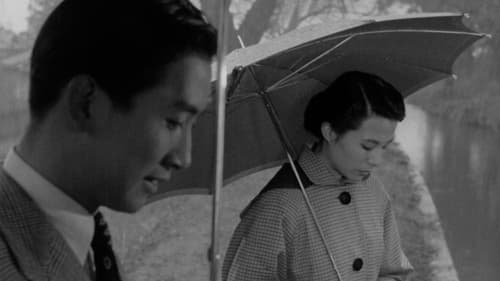
번역일로 먹고 사는 마유미는 결혼을 하지 않아 주위 사람들의 걱정을 산다. 마유미는 결혼 생각이 없다며 대답을 피하지만 사실 그는 오랫동안 한 여성만을 좋아하고 있다. 한편, 마유미는 우연히 만난 친구에게 새로운 일을 제안 받는다. 바로 미군과 사귀는 여성들에게 영어 편지를 대신 써주는 일이다. 기노시타 게이스케 감독이 각본을 썼으며, 다나카 기누요도 마유미의 고객으로 잠시 출연한다. 1954년 칸영화제 경쟁부문 상영.

Director
번역일로 먹고 사는 마유미는 결혼을 하지 않아 주위 사람들의 걱정을 산다. 마유미는 결혼 생각이 없다며 대답을 피하지만 사실 그는 오랫동안 한 여성만을 좋아하고 있다. 한편, 마유미는 우연히 만난 친구에게 새로운 일을 제안 받는다. 바로 미군과 사귀는 여성들에게 영어 편지를 대신 써주는 일이다. 기노시타 게이스케 감독이 각본을 썼으며, 다나카 기누요도 마유미의 고객으로 잠시 출연한다. 1954년 칸영화제 경쟁부문 상영.

Hisa Hosho
This film stars Tanaka Kinuyo as the mother of the heir to the Hosho name, a famous lineage of Noh actors. The heir, Hosho Yagoro, is played by Hasegawa Kuzuo who went on to become familiar among Ichikawa Kon fans as Yukinojo in An Actor's Revenge, which was also co-written by Ito, adding to the relatedness of An Heir's Place.
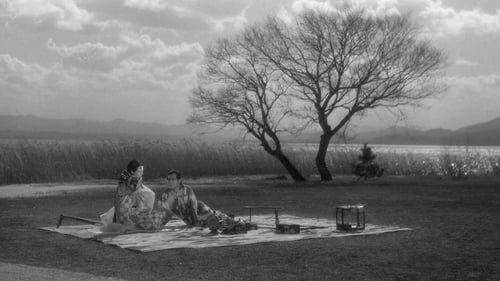
Miyagi
도공 겐주로는 전란의 혼란을 틈타 큰 돈을 벌 생각을 한다. 한편 그의 매제 도베이는 사무라이로서 출세하는 것이 꿈인 사내다. 겐주로의 처 미야기는 돈은 못 벌더라도 가족 간의 단란함이 훨씬 소중하다고 생각한다. 겐주로는 만들어놓은 도기를 팔러 도회로 나가 상당기간 소식이 끊어진다. 그는 시장에서 어느 귀부인으로부터 물건을 배달해달라는 부탁을 받는데, 그녀의 아름다움에 한눈에 반하고 만다. 현실과 환상의 구분을 일거에 무너뜨리는 뛰어난 영상미와 인간의 어리석음의 근원을 파고드는 설득력 있는 스토리로 미조구치 겐지의 이름을 세계에 알린 작품일뿐 아니라 후대의 영화 작가들에게 큰 영향을 끼친 영화이다.

Hiroko Ogata
Gosho’s most celebrated film both in Japan and the West, Where Chimneys Are Seen is perhaps the most compelling example of his concern for, and insights into, the everyday lives of lower-middle-class people. Based on Rinzo Shiina’s novel of the absurd, the film depicts the lives of two couples against the backdrop of Tokyo’s growing industrialization during the 1950s.

Kuniko
A young student falls into a hopeless romantic attraction to a sick girl, whom he can only see from afar.
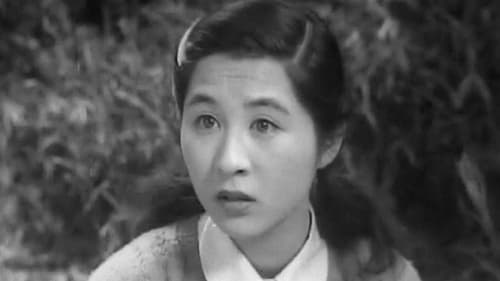
Masako Fukuhara
료스케는 "뽀빠이" 타입의 아버지로 전쟁 때 폭격으로 불타버렸던 가게를 재건하고자 밤낮으로 열심히 일한다. 그의 아내인 마사코와 두 딸인 도시코와 히사코 또한 가족을 위해서 끝없이 희생하며 최선을 다해 돕는다. 도시코는 피카소에 영감을 받아 빵을 굽는 근대적인 사고를 사진 빵집의 신지로와 사랑하는 사이다. 어느 날 아버지는 병으로 눕게 되고 그의 형제인 기무라가 찾아온다. 그는 아버지에게 무슨 일이 일어나면 자신이 일을 돕겠다고 한다. 기무라는 모든 사람들과 잘 지내지만, 도시코는 사람들이 엄마와 기무라 간의 염문에 대해 수군거리는 소리를 듣게 된다. 이기심이 발동한 도시코는 기무라가 떠나야 한다고 주장하고 결국 기무라는 그렇게 하는데... (서울시네마떼끄 나루세 미키오 회고전)

Kuniko Ataka
Soichi Ataka is the eldest son of Ataka family. Although mentally challenged, he's a person with a gentle heart. Soichi's wife, Kuniko is devoted to her husband and together the couple runs the family farm. Their happy family life comes to an abrupt halt when Soichi's half-brother, Joji returns with his wife Masako after failing in a business.

A family of Kyoto textile workers struggles after tragedy.
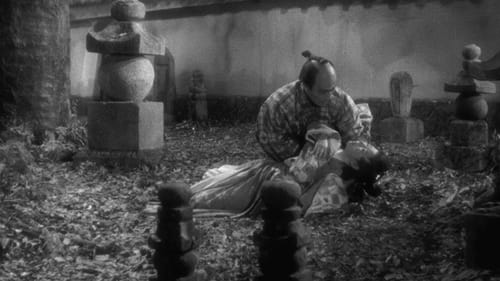
Oharu
영화는 늙고 추해져 남자들의 관심을 끌 수 없는 거리의 작부가 지난 자신의 삶을 되돌아보면서 이야기를 펼쳐낸다. 궁녀였다가 결국에는 매춘부로까지 전락하는 그녀의 지난한 삶의 과정들을, 미조구치는 그 특유의 유장한 스타일로 그려내며 거기에 불가사의한 초월의 분위기를 부여하려 한다.

Gensaburo Funaki and Oyuki were childhood friends, but Gensaburo misunderstood that Oyuki was hesitant to get married because he had to feed his father and younger brother. I left the town.
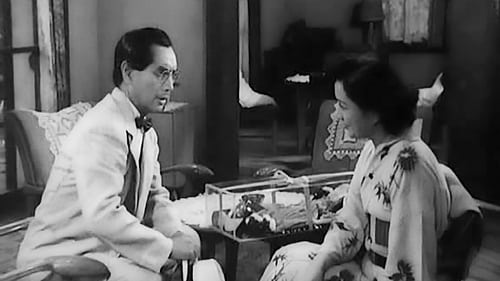
Michiko Akiyama
대를 잇고자 아버지는 무남독녀 미치코를 보잘것없는 배경의 대학교수 타다오와 결혼시키고, 그를 데릴사위로 들인다. 전쟁에 휩쓸려 시간은 흐르고, 미치코는 선친의 유지를 받들며 가문을 지키려 한다. 그런데 이미 아내와도 소원해진 타다오는 학생들과도 거침없이 육체관계를 맺고, 아내의 친척 토미코와도 정분이 난다. 한편, 미치코의 사촌 츠토무가 귀향하는데, 미치코는 츠토무를 향한 감정을 억누르고, 그가 보내는 사랑을 부정한다.

Oyû Kayukawa
오시즈라는 아가씨와 맞선을 보게 된 젊은 골동품상 신노스케는 그녀가 아니라 그녀의 언니인 오유에게 더욱 끌리게 된다. 미망인이자 한 아이의 모친인 오유는 그런 신노스케의 마음에 아랑곳하지 않고 오시즈에게 결혼을 권한다. 오시즈는 신노스케가 자신보다 언니에게 더 끌린다는 것을 알면서도 두 사람의 가교 역할을 해주기로 결심하고 결혼을 받아들인다.
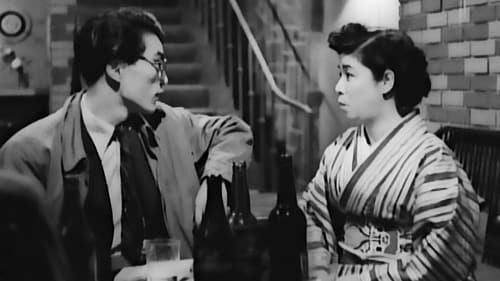
Yukiko Tsuji
긴자에 있는 술집 벨아미에서 일하는 유키코는 외아들 하루오와 함께 방을 얻고 씩씩하게 살고 있다. 옛날부터 친구였던 시즈에는 만사 돈이면 다 해결되리라고 생각하고 부자집 첩으로 살고 있었지만, 유키코는 이를 못내켜 한다. 어느 날 시즈에는 본인이 소개한 마을 부자집 차남, 이시카와가 상경하니 안내해달라고 유키코한테 부탁한다. 할 수 없이 안내역을 맡은 유키코였지만 이시카와의 순수하고 인간적인 성격을 보고 아련한 연정을 갖게 된다.

Onaka
A period mystery in which an unconventional priest exposes the truth behind the bizarre death of a maid in the shogun's harem. Kinuyo Tanaka stylishly plays a constantly intoxicated geisha in this all-star entertainment film.
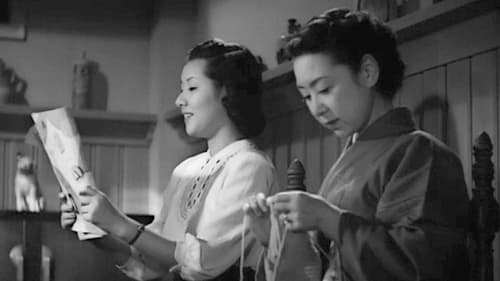
Setsuko Munekata
세츠코는 남편 미무라 때문에 불행한 결혼 생활을 이어가고 있다. 엔지니어 출신의 남편이 직업도 얻지 않고 매일 술만 마시는 까닭에 괴로운 것이다. 그럴 때마다 세츠코의 마음속에는 오래 전 헤어질 수밖에 없었던 히로시가 떠오른다. 사랑하는 사이였지만 프랑스 유학 때문에 헤어질 수밖에 없었던 것. 하지만 히로시가 돌아오면서 새로운 국면을 맞이한다.
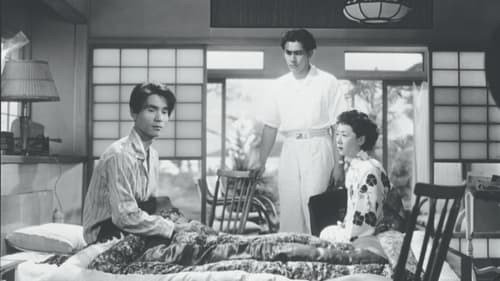
Noriko Kuki
A jewelry store president begins to fall for the doctor treating her husband's illness.

Oiwa / Osode
Part 2 starts where the first film ended, with Iemon disposing of the bodies of his wife and Kohei, marrying upward, and being blackmailed by the evil Naosuke.
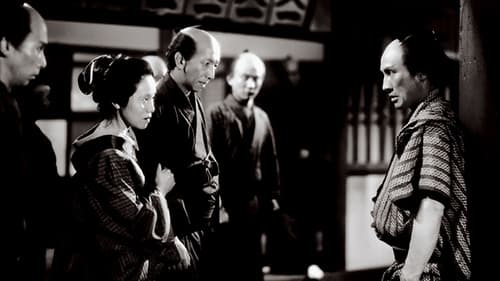
Oiwa / Osode
간교한 나오스케는 감옥에 있던 사람들과 함께 탈옥을 공모하였으나, 그 사실을 간수에게 몰래 알려서 탈옥을 실패하게끔 만들고 자신은 감형을 받아 출옥을 하게 된다. 고헤이는 연모하던 술집 작부인 오이와를 술집으로부터 꺼내 주기 위해 돈을 마련하려고 도둑질을 하다가 감옥에 갖혔지만, 탈옥 공모에 가담하지 않았기 때문에 다행히 목숨을 건질 수 있었다.한편, 오이와는 비록 술집 작부이긴 했으나 행실이 곱고 용모 또한 수려하여 술집을 그만두고 벼슬을 얻지 못한 낭인 무사인 이에몬과 혼인을 하여 살고 있었다. 어느 날 이에몬은 에도에서 가장 큰 쌀 도매상의 외동딸인 오우메가 치한들에게 봉변을 당하는 장면을 목격하고 그녀를 구출해 주게 되는데, 남자다운 그 모습에 오우메는 한눈에 반하고 만다.감옥에서 출옥을 한 나오스케가 마침 그 장면을 목격하게 되었고, 한탕 잡을 만한 거리를 찾고 있던 그는 이에몬을 오우메와 맺어 주기 위해 오이와와 이혼시킬 계략을 세운다. 이에몬은 출세를 위한 절호의 기회를 놓칠 수 없다는 생각에 나오스케의 계략에 동참하게 되지만, 워낙 우유부단한 성격의 이에몬은 차마 오이와를 버릴 수가 없어 번민한다. 보다 못한 나오스케는 결국 오이와를 죽이는 수밖에 없다는 생각을 굳히고 그녀를 독살해 버린다. 그러나, 출옥한 이후에도 오이와를 잊지 못해 그 주변을 맴돌던 고헤이가 그 장면을 목격하게 되어, 그도 역시 참혹한 죽음을 맞고 만다.한편, 오이와의 쌍둥이 동생인 오소데는 언니가 행방불명된 데 대해 의혹을 품고 진상을 파헤치고자 하는데...
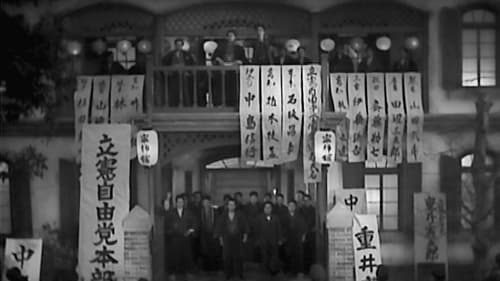
Eiko Hirayama
메이지 시대, 히라야마 에이코는 집안 하녀이자 친구인 치요가 팔려 가자 집을 뛰쳐나와 도쿄로 간다. 에이코는 자유당에서 여성 인권을 위해 애쓰는데, 당 지도자인 오모이와 사랑에 빠진다. 그런데 치요가 저지른 공장 화재 때문에 에이코와 켄타로도 체포된다. 몇 년 후인 1889년, 헌법이 공포되어 세 사람은 풀려난다. 그들은 자유당을 재발족해 활동을 시작하는데, 오모이는 더 이상 여성 평등을 위해 투쟁하지 않는다.

Tokiko Amamiya
전쟁 직후의 일본 사회를 배경으로 여인의 수난을 그린 작품. 미조구치 겐지의 <밤의 여인들>에서 창부 역할을 훌륭히 소화해 낸 인기 여배우 다나카 기누요가 호연했다. 전작인 <셋방살이의 기록>이 도시 인정물의 연장선상의 희극적인 작품이었다면, <바람속의 암탉>은 패전 후의 생활고와 가혹한 현실을 다룬 작품으로 가족간의 갈등을 주로 다루었던 오즈의 작품 세계에서 전후 일본사회에서 겪는 여성의 수난을 다루었다는 점에서 특기할 만한 작품이다. 전후 일본의 동떨어진 비현실적인 묘사로 동시대의 비평가들로부터 비판의 대상이 되기도 했던 작품이지만, 오즈의 후기 영화미학으로 가는 과도기적인 작품이다. 전쟁은 끝났지만 전쟁에 나간 남편 슈이치는 돌아오지 않고 소식도 없다. 남편 없이 어렵게 가정을 꾸려가던 도키코는 아이의 병원비를 벌기 위해 몸을 판다. 그러던 중 슈이치가 집으로 돌아오고, 아내는 남편에게 매춘 사실을 고백하는데..
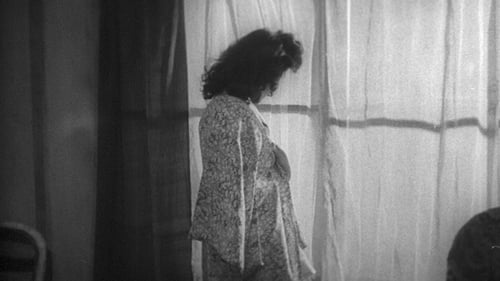
Fusako Owada
미조구치의 영화 이력에 전환점이 되는 작품으로 전후 오사카 뒷골목을 무대로 거리의 매춘부 문제를 다루고 있다. 오사카 사투리와 건조하면서도 어두운 분위기가 를 연상시키며, 네오리얼리즘적인 촬영을 시도했던 작품이기도 하다. 전쟁에서 남편을 잃고 아이도 결핵으로 잃은 후사코는 구리야마의 비서 겸 애인이 되지만, 여동생 나츠코가 구리야마와 관계를 가진 사실을 알고 충격을 받아 집을 나오는데...

Sayoko Aihara
A Japanese war widow recalls her love affair with her deceased husband.
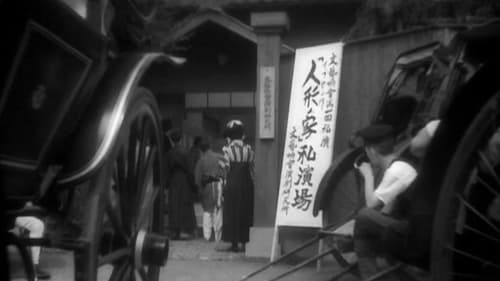
Sumako Matsui
서양 연극을 도입한 연출가 시마무라는 "인형의 집"을 무대에 올릴 준비를 하는데, 여주인공 노라 역 때문에 고민이다. 그러다 시마무라는 남편과 싸우고 헤어졌다는 여배우 마츠이 스마코를 만나게 되는데, 거침없이 이야기하는 당찬 그녀를 노라 역에 발탁한다. 스마코와 사랑에 빠진 시마무라는 그녀와 함께 하기 위해 가족까지 버리고, 둘은 연극계에서도 쫓겨난다. 20세기 초에 활약했던 여배우 마츠이 스마코를 소재로 한 나가타 히데오의 희곡을 각색했다.

Fumie Matsukawa
In postwar Japan a young woman is unable to marry her sweetheart because her family's in difficult circumstances and needs her income to keep afloat.
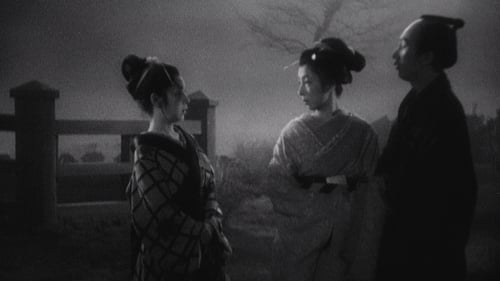
Okita
가노파의 세이노스케는 이름난 우키요에 화가 우타마로에게 격분한다. 그러나 세이노스케는 자신의 그림을 몇 번의 붓질로 다른 그림으로 바꿔 버린 우타마로의 재능에 탄복하고, 그의 제자가 되기로 한다. 그런 세이노스케를 찾아갔던 가노의 딸 유키에는 유곽의 창부를 보고는 돌아가 버린다. 한편, 그림을 그리며 창부들과 어울리던 우타마로는 벌을 받아 그림을 그리지 못하게 된다. 관능적인 미인도로 유명한 에도 시대의 우키요에 화가 기타가와 우타마로의 삶을 소재로 한 작품.

Hiroko Hosokawa
A lawyer fights doggedly for a more just legal system to rid Japan of its draconian penal system.

Okinu
에도 시대, 산주산겐도 사당에서 매년 개최하는 궁술 대회는 많은 이들의 관심의 대상이다. 다이하치로의 아버지는 이 궁술 대회에서 패배한 후 스스로 목숨을 끊었고, 다이하치로는 어릴 때부터 우승을 꿈꾸며 궁술을 갈고 닦는다. 하지만 최고의 실력자 간자에몽 등 어려운 장애물이 기다리고 있다. 나루세 미키오의 첫 사극 영화.

Woman who sings lullaby
Hisshoka is a 1945 Drama film directed by four Japanese directors.

Shinobu Nonomiya
The first of five Musashi series, Shinobu and her brother Genichiro plead with the famous swordsman Musashi Miyamoto to teach them swordsmanship to avenge their father's death. The killers of their father see the sister and brother practicing with Miyamoto, and so enlist the help of another powerful swordsman, Kojiro Sasaki, which gives Sasaki an excuse to battle Miyamoto.

Waka
후쿠오카의 전당포집 아들 도모노조는 19세 때 왕정 복고의 전화를 체험한다. 30년 후, 청일전쟁의 발발을 눈앞에 두고 나라를 걱정하던 노모노조는 협심증으로 세상을 떠난다. 그의 아들 도모히코는 1904년 하녀 와카와 결혼하고, 곧 러일전쟁이 일어난다. 세월이 흘러 또 다시 일본은 전쟁의 소용돌이에 뛰어들고, 와카는 전장에 나간 아들을 쫓아 군부대를 따라간다.

Japanese war movie.

Kempeitai fights American spies in Japan

Pretty Oshige is deceived by her first love. After this, she lives a hard lifestyle, working at a number of jobs. Her only pleasure is her nephew, who eventually becomes a merchant marine. When Oshige meets her old love ten years later, she is able to forgive him and even thank him for the path her life has taken.

A group of female doctors travel to a remote village during their summer holiday to offer free medical care to villagers. There they must battle prejudice and superstition as much as disease.

Emi
이부세 마스지의 유머 넘치는 원작을 시미즈 히로시가 세련되게 연출해낸 우아한 멜로드라마. 미노부 산을 찾는 참배객들로 늘 번화한 시모베 온천의 여관. 온천에 휴양 온 난무라는 온천욕을 하던 중 머리 장식핀에 발에 상처를 입게 된다. 머리 장식핀 주인인 에미는 이를 사과하기 위해 다시 온천을 찾고 난무라는 그녀를 보자 첫눈에 연심을 품게 된다. 에미는 그가 다시 걸을 수 있을 때까지 곁에 있어 주는데, 난무라의 상처가 다 나아 도쿄로 돌아가고 다른 이들도 떠나지만 에미는 온천에 머문다.

Most of the students studying Ikebana with Kozoe Iemoto are daughters of rich Tokyo families. Kozoe meets and grows close to a doctor who proposes marriage but whose mother harbours ill feeling towards her because of an incident in the mountains where a child got into difficulties. Kozoe rejects the proposal but falls ill and when she recovers, decides to devote herself entirely to the world of flower arranging.

In the movies of those times, you can see young boys in the company scene often. Those boys were called kyuji (給仕), which means “waiter” literally. They are doing odd jobs in the company including serving tea, ushering visitors, buying tobacco, etc. Ordering lunch for the individual requests was also an important job. Those boys were hired often as soon as they graduated from elementary school.

A story of a store that makes Tabi socks.

Followup film to Osaka Elegy - Osaka Woman

Chiyo

Kinuyo is a daughter of rice cracker shop in downtown. She fell in love with her sister's boyfriend. It is a story whose theme is warm human relationships in a town of customs and manners.

Weed with Flowers

Eiko is an innocent young lady born into a wealthy family with nothing to offer. She was good at singing, and lived her life playing around with her cronies, organizing music concerts and so on. However, things change when her father's business fails and she was suddenly thrown out into the world without any foundation. Eiko has no one to support her after she loses her social status, and her only tutor, Shinnosuke (Natsukawa Daijiro) was the only one who was sincere. Eiko is a stickler for using everything she can get her hands on, and she quickly moves into Shinnosuke's house.
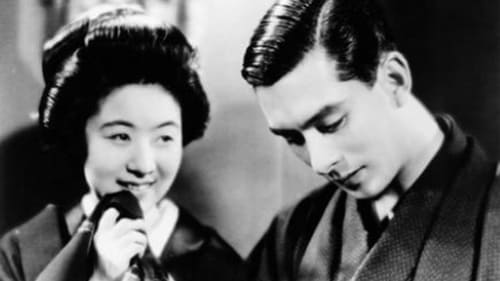
Okayo
A young student of traditional dance falls in love with a handsome young man who visits the dance school in order to take photographs.

Katsue Takaishi
A young doctor, Kozo Tsumura, falls for young nurse Katsue Takaishi. But she's got a secret: she's a widow with a son. Kozo and Katsue decide to run away to Kyoto, but her child suddenly became sick and she just missed the train and Kozo. She makes it to Kyoto finally, but is unable to meet him. Plus she isn't accepted into Kyoto society. She goes back to her hometown and tries to forget him. She quits the hospital to concentrate on her singing. She makes her professional debut with the hit "Aizen Katsura". Kozo is in the audience.

Chieko
The movie follows a young woman (Kinuyo Tanaka), a daughter of a high-ranking businessman and his neglected mistress, as she struggles to ease her mother's loneliness, while also having an affair with her father's subordinate.

Sabu Toshinobu is an archaeologist who has taken a liking to Kinuyo Tanaka, the daughter of an archaeologist at an inn in Izu, where he is visiting to conduct an excavation. Sabun gets along well with his childhood friend Michiko Kuwano, but his mother (Fumiko Okamura) is against her, so he gives up easily and ends up being married to Kinuyo Tanaka.

Sabu Toshinobu is an archaeologist who has taken a liking to Kinuyo Tanaka, the daughter of an archaeologist at an inn in Izu, where he is visiting to conduct an excavation. Sabun gets along well with his childhood friend Michiko Kuwano, but his mother (Fumiko Okamura) is against her, so he gives up easily and ends up being married to Kinuyo Tanaka.

Kinuyo Yamaoka
Kinuyo is a daughter of doctor of Chinese medicine, and Yasuo is a son of surgeon. Their families always fight like cat and dog. This relationship is ancestral. Although Kinuyo and Yasuo love each other, they have different thoughts toward treatments.

Yoko
Three men fall in love with the same young girl who works in a tonkatsu restaurant in the Shitamachi district of Tokyo.

The eldest daughter of a noble family is in love with an aviator while being courted by a fellow aristocrat she thinks is a dullard. Told from the perspective of Ryota. In this second part, we learn that Akemi is pregnant...

The eldest daughter of a noble family is in love with an aviator while being courted by a fellow aristocrat she thinks is a dullard. This part is told from the perspective of Akemi.

A musical film made for the inauguration of Shochiku's Ofuna Studio, with an all-star cast of the era.
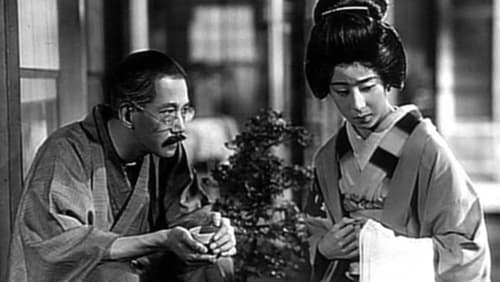
Itsuko Kuriyama
Family drama. A middle-aged father has just married off his third daughter, but still has his nine year old son to raise whom he resents as he was unwanted. (British Film Institute)

Okoto
A period piece about the love of a wealthy blind woman, a teacher of koto and shamisen, and her devoted manservant. Based on a novella by Tanizaki Junichiro.
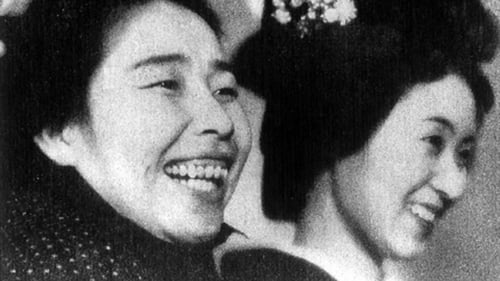
Oshige
In a back alley of the Shitamachi district of Tokyo, Kihachi bears witness to a series of romantic complications involving the inhabitants of the neighborhood. Considered to be a lost film.

Сумако
Jyuta, an honest owner of a taxi company, has a younger half-brother who is involved in the yakuza world and doesn’t get along well with his mother. Jyuta tries to correct him…

That Night's Woman

Osayo
The poor novelist Yamamoto is writing his novel, determined and with a headband around his head. With him, the novelist who is always in trouble paying his bills, is the girl Saya who becomes the model for his novel. Saya however is in love with a young driver. When he is forced to move into a spa town as the result of the jealousy of another man Saya is terribly sad. But with the help of Yamamoto the driver's rival can be revealed and Saya can finally be with her beloved.

Tokiko
평범한 직장에 다니는 도키코와 건달 조지는 연인이다. 도키코는 조지가 범죄 세계에서 발을 빼기를 바라지만 조지의 마음을 돌리기는 쉽지 않다. 어느 날, 조지가 친구의 여동생인 가즈코와 가까워지자 도키코는 두 사람을 떨어뜨려 놓으려 한다. (2020 한국시네마테크협의회 - F 시네마 필름 상영 워크숍)

Harue
료이치와 치카코는 서로를 의지하며 사이좋게 지내는 남매이다. 하지만 치카코는 낮에는 작은 회사에서, 밤에는 술집에서 일한 돈으로 오빠 료이치의 대학 등록금을 낸다는 사실을 비밀로 하고 있다. 한편, 료이치는 하루에와 데이트를 하면서 하루에의 오빠이자 경찰인 신요와도 가까워진다.

Kaoru, a dancer
"The Dancing Girl of Izu" tells of the story between a young male student who is touring the Izu Peninsula and a family of traveling dancers he meets there, including their youngest girl. The student finds the naïve girl attractive even though he eventually has to part with the family after spending memorable time together.

Haruko, bride
This pair of gentle yet witty and inventive comedies from the director of The Neighbour's Wife and Mine typify both the formal experimentation of early Japanese sound cinema and the social milieux that Shochiku tended to depict. 'Virtually plotless, and feeling more like comic sketches than fully developed stories,' writes Arthur Nolletti, Jr, 'these light comedies, or farces, take a wholly trivial matter (often a socially embarrassing situation) and use it as a springboard for a succession of gags.' Much of the films' distinction comes from the wit of Gosho's direction, the imaginative use of the new sound technology and the charm of the acting, particularly of the heroines (Kinuyo Tanaka in Bride; Hiroko Kawasaki in Groom). Yet in both films, Gosho finds room for some shrewd observation of character and environment, subtly exploring the values and assumptions of the suburban petit bourgeoisie.

Oshige
여자 한명을 둘러싸고 펼쳐지는 남자 두명의 우정 드라마. 사장 아들인 테츠오는 친구인 쿠마타, 시마자키와 즐거운 학생 생활을 보내고 있었는데, 부친이 갑자기 돌아가시어 회사를 이어받게 된다. 그러나 쿠마타의 배려로 취직을 하게된 친구들이 사장인 쿠마타에 대하여 비굴한 태도로 대하게 되는데...

Yae
This 1932 adaptation is the earliest sound version of the ever-popular and much-filmed Chushingura story of the loyal 47 retainers who avenged their feudal lord after he was obliged to commit hara-kiri due to the machinations of a villainous courtier. As the first sound version of the classic narrative, the film was something of an event, and employed a stellar cast, who give a roster of memorable performances. Director Teinosuke Kinugasa was primarily a specialist in jidai-geki (period films), such as the internationally celebrated Gate of Hell (Jigokumon, 1953), and although he is now most famous as the maker of the avant-garde silent films A Page of Madness (Kurutta ichipeji, 1926) and Crossroads (Jujiro, 1928), Chushingura is in fact more typical of his output than those experimental works. The film ranked third in that year’s Kinema Junpo critics’ poll, and Joseph Anderson and Donald Richie noted that 'not only the sound but the quick cutting was admired by many critics.

Directed by Yasujirô Shimazu.

Wife of the playwright
A playwright moves to a rural neighborhood to avoid the distractions of the city, but he discovers there are plenty of ways to get sidetracked in his new home, too.

The three-hour Ai yo jinrui to tomo ni are / Love, Be with Humanity (1931) starts as a satire of alienation in the world of money, develops into a lumberland epic with a forest fire on Sakhalin Island, turns into a tragedy of King Lear dimensions, and manages to amaze the blasé audience with a happy end in the Wild West.

Kinuko
Two reporters find that they are repeatedly beaten to the scoop by a new female journaist, 'young miss'. They decide to team up with her to investigate a secret club for wealthy voyeurs. Considered to be a lost film.

A modern girl suddenly intrudes into a widower's family home.
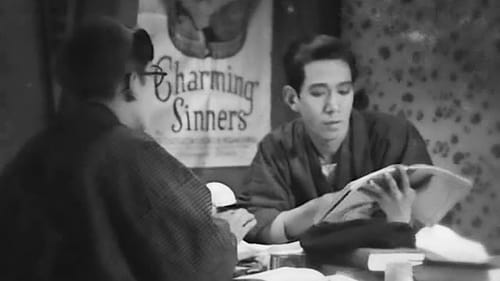
Cafe's waitress
This bittersweet comedy tells the tale of a group of college roommates attempting to cheat their way through their exams. As the title goes, things don't work out for our roguish main character, but his classmates soon find themselves in a similarly sorry state...

A farmer’s boy, obsessed with his balsa-and-paper flying models and with dreams of real aircraft, develops a friendship with the daughter of the local squire, who introduces the lad to her pilot brother and his flying officer friends; through hard work, and despite the handicap of a lowly class status, he eventually succeeds in qualifying as a pilot and joining the air force.

Machiko Nomoto
Tetsuo Nomoto, a young graduated student tries to find a decent job by himself. Later on, he will marry his girlfriend, Machiko, whom he hides the fact that he has no job. Hardships come quickly, which forces Machiko to find a job in a bar. [Partially lost film; only 12 minutes survive.]

Omitsu

A young man torn between love and friendship.
